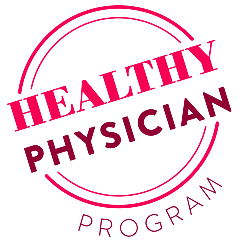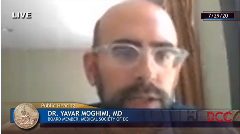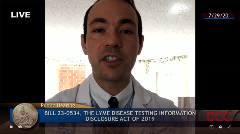Health Equity
Medicaid Enrollment Touches 39% of the Residents of The District of Columbia; DC’s 70/30 FMAP is Vital for the Maintenance of Health & Human Services
A reduction in the District’s FMAP would not lead to long-term government savings and would have a ripple effect throughout the entire health system in the DMV, crippling access to care for not only Medicaid beneficiaries but also all those who live, work, and visit the District of Columbia, including members of Congress and their staffs.
.png?sfvrsn=9ac2d21b_0)
Why does DC receive an Enhanced FMAP Rate?
The DC FMAP rate of 70% established by the Revitalization Act resulted from bipartisan analysis, discussion, and negotiation by Congressional leadership aiming to balance fairness with the District’s restricted ability to generate revenue. Congress recognized that the District of Columbia faces unique financial challenges due to its non-state status and the significant amount of federally-owned land within its boundaries. The District is unable to tax non-residents’ earnings, so these workers pay no taxes to support the infrastructure and services, such as roads, public safety and emergency services that they benefit from in the District. The District is also unable to tax up to 40% of the real property within its borders due to statutory restrictions.
Why are we concerned about DC's FMAP now?
Members of Congress have proposed reducing the DC FMAP to the statutory minimum for all other states, which is currently 50% (but could be reduced even more). Such a change would impact every physician and every practice, regardless of type, location, and payers contracted. Even practices who take no insurance will not be able to send patients for specialist care, hospital admissions, or other types of care.
What can MSDC members do?
- If you know a member of Congress or staffer, reach out to them and share how DC cuts will hurt your patients.
- Share your relationships and outreach with hay@msdc.org so we can help coordinate advocacy efforts.
- Email hay@msdc.org if you would like to be paired with a physician member of Congress office and trained by MSDC staff on how to reach out.
Resources
- DC FMAP cut fact sheet
- California Medical Association fact sheet on Medicaid cuts
- MSDC and healthcare association letter to Congress arguing against DC FMAP changes.
- MSDC original story on Medicaid changes.
News, Statements, and Testimony on Health Equity Issues
MSDC Leaders Testify Before Board of Medicine and Council
Yesterday, MSDC leaders spoke out on myriad topics before the District government as part of the Society's mission to make DC the best place to practice medicine.
 MSDC President J. Desiree Pineda, MD, FACP, presented to the monthly DC Board of Medicine meeting briefly on the new Healthy Physician Program. The program, to launch next week, provides professional and peer support services for physicians who are experiencing moral injury or need a colleague to speak with during these uncertain times. Dr. Pineda gave the Board an update and reinforced the need for the Board to collect and share good data as part of the license renewal process. MSDC seeks to work with DC Health to study workforce survey data to see how the COVID-19 pandemic is impacting physician wellbeing.
MSDC President J. Desiree Pineda, MD, FACP, presented to the monthly DC Board of Medicine meeting briefly on the new Healthy Physician Program. The program, to launch next week, provides professional and peer support services for physicians who are experiencing moral injury or need a colleague to speak with during these uncertain times. Dr. Pineda gave the Board an update and reinforced the need for the Board to collect and share good data as part of the license renewal process. MSDC seeks to work with DC Health to study workforce survey data to see how the COVID-19 pandemic is impacting physician wellbeing.
 Also yesterday, two MSDC leaders testified before the Committee on Health on five separate bills. MSDC Board member and psychiatrist Yavar Moghimi, MD testified on B23-543, the Suicide Prevention Continuing Education Amendment Act of 2019. Dr. Moghimi testified that MSDC is concerned with the high rate of suicide in America, and referenced the higher-than-average suicide rate among medical professionals versus the entire population. However, Dr. Moghimi shared that the medical licensure process is a process designed to indicate who is qualified to practice medicine in the District, not who is most knowledgeable, and mandatory content matter across all specialties (even those who do not interact with patients) is counterproductive. Instead, on behalf of MSDC, Dr. Moghimi offered to work with DC Health and the private sector to educate the physician community on signs of suicide risk.
Also yesterday, two MSDC leaders testified before the Committee on Health on five separate bills. MSDC Board member and psychiatrist Yavar Moghimi, MD testified on B23-543, the Suicide Prevention Continuing Education Amendment Act of 2019. Dr. Moghimi testified that MSDC is concerned with the high rate of suicide in America, and referenced the higher-than-average suicide rate among medical professionals versus the entire population. However, Dr. Moghimi shared that the medical licensure process is a process designed to indicate who is qualified to practice medicine in the District, not who is most knowledgeable, and mandatory content matter across all specialties (even those who do not interact with patients) is counterproductive. Instead, on behalf of MSDC, Dr. Moghimi offered to work with DC Health and the private sector to educate the physician community on signs of suicide risk.
 Samuel Kareff, MD, the Chair of MSDC's advocacy committee, testified on four other bills before the Committee: the Certificate of Stillbirth Amendment Act, the Lyme Disease Testing Information Disclosure Act, the Opioid Labeling Amendment Act, and the SMA Screening Act. Dr. Kareff provided a medical perspective on all four bills. He expressed MSDC's support for the Certificate of Sillbirth Act and the Opioid Labeling bill. He shared some concerns on the Lyme disease bill, as it would mandate a scripted message providers and health facilities must give a patient after a Lyme disease test. He also expressed support for the SMA Screening Act but shared the American College of Obstetricians and Gynecologists (ACOG) guidance on screening for SMA.
Samuel Kareff, MD, the Chair of MSDC's advocacy committee, testified on four other bills before the Committee: the Certificate of Stillbirth Amendment Act, the Lyme Disease Testing Information Disclosure Act, the Opioid Labeling Amendment Act, and the SMA Screening Act. Dr. Kareff provided a medical perspective on all four bills. He expressed MSDC's support for the Certificate of Sillbirth Act and the Opioid Labeling bill. He shared some concerns on the Lyme disease bill, as it would mandate a scripted message providers and health facilities must give a patient after a Lyme disease test. He also expressed support for the SMA Screening Act but shared the American College of Obstetricians and Gynecologists (ACOG) guidance on screening for SMA.
MSDC is constantly testifying before government entities on health policy. If you would like to learn how you can be involved in MSDC's advocacy efforts, contact our office.

Leave a comment